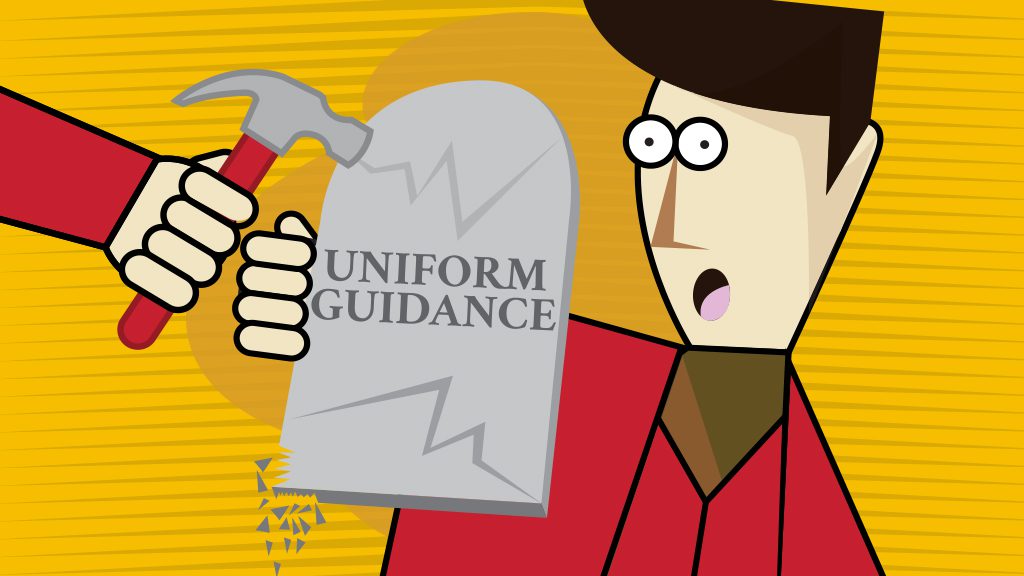When the U.S. Office of Management and Budget released Uniform Guidance a couple of years ago, the goal was to provide a more structured and standardized approach to grants management within institutional research operations.
The guidelines provide research offices with rules and regulations for the process of proposing and managing research sponsored by federal funds. As with any major change, however, there are always new problems that develop – and new loopholes.
Voluntary Cost Sharing Required?
Under the revised guidelines, voluntary cost sharing should not influence the outcome of a grant competition, essentially leveling the playing field for principal investigators whose institutions may not be able to support research programs via cost-sharing.
Yet many grant programs hint that cost-sharing ability may make submissions more competitive. That means investigators who do not have strong cost sharing support may have a harder time competing for some grants.
“This creates a real problem between principal investigators and their institutions,” said Beverly Rymer, executive director of the Office of Contracts and Grants at the University of Houston. “Many investigators request cost sharing for these grants because they fear they’ll not be able to compete for the funding without it.”
While not a requirement, per se, cost sharing may factor into the funding decision, leaving investigators unsure of whether their submissions are competitive – and putting extra pressure on university administrations to cough up the dough.
To Cost Share or Not to Cost Share
In the heat of the moment when the deadline is approaching, uncertainty around uniform guidance policy could cause unnecessary stress among research teams that might ultimately threaten a successful submission.
Sara Bible, associate vice provost for research at Stanford University, said that when funding agencies operate outside the guidelines, especially on matters such as cost sharing, it may create tension between faculty and the department, dean’s office or university officials who are asked to fund the cost sharing that was not supposed to be required.
“Any time we see agencies deviate from Uniform Guidance, we call the policy office and point out that a specific program announcement is not consistent with the guidelines. Our experience is that the policy offices appreciate that we have made them aware of the issue and they contact the specific program officer to remedy the inconsistency.”
According to Bible, it’s quite possible for investigators get mixed messages from the agency and their research administrators. And when the clock is ticking down to that deadline, investigators should focus on the merit of their project proposal, not their uncertainty about the guidelines.
“Universities have to pay careful attention to the guidelines,” Bible said. “When agencies operate outside those guidelines, there are consequences for universities. We need the Uniform Guidance to be uniform.”



